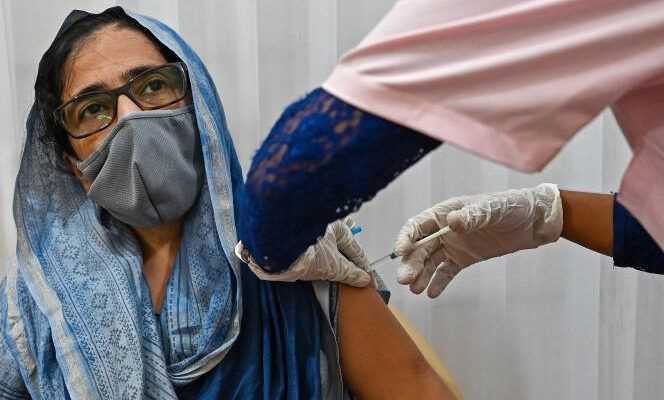As Europe begins to ease restrictive measures against the Covid-19 epidemic, the so-called “Indian” variant of the coronavirus, B.1.617 of its scientific name, joined the list of variants on Tuesday, May 11, ” of concern ”held by the World Health Organization (WHO), which already featured the British, Brazilian and South African variants.
Spotted to date in 49 countries, B.1.617 is “More contagious” than the initial strain of SARS-CoV-2 and there is “Elements which suggest that it attenuates the response of the antibodies which make it possible to fight the virus”, said Maria Van Kerkhove, technical manager of the fight against Covid-19 at the WHO, to justify this decision.
These comments did not really put an end to the confusion that reigns around the Indian variant. On Saturday May 8, Indian pediatrician Soumya Swaminathan, chief scientist at WHO, spoke of a variant “Which spreads very quickly, which is more contagious, and which could escape vaccine protection, thus contributing to the explosion of the epidemic in the country”.
The South Asian giant has detected more than 350,000 new cases of Covid-19 per day for almost three weeks and the daily death toll currently exceeds 4,000. But in the regions hardest hit by the second wave, the Maharashtra and its capital, Bombay, but also Delhi, where a strict containment of the population is in place, as well as in the Punjab and Chhattisgarh, a tendency to ebb has been observed for several days.
UK affected
Monday May 10, Mme Swaminathan backpedaled, explaining that the Indian variant “Cannot be held solely responsible for the dramatic increase in the number of cases and deaths observed in India”, recognizing also that the country has above all “Let his guard down” this winter, after the end of the first epidemic wave. “What we know now is that the vaccines work, that the diagnostics work, that the same treatments that were used for the original virus work, so there is no need to change anything.” is “, did she say. Tuesday, May 11, the WHO representative in India, Roderico Ofrin, called for restraint. According to him, the role played by the variant in the explosion of the epidemic “Remain uncertain”.
The scientific community is itself hesitant. In the United Kingdom, a country where the different versions of the Indian variant – B.1.617, B.1.617.1, B.1.617.2 and B.1.617.3 – have been the most spotted in recent weeks outside India, some Experts are calling on the government to delay the further lifting of restrictions scheduled for Monday, May 17. According to Public Health England, it appears that the Indian variant is “At least as contagious” that the British variant discovered last fall in Kent, but “We do not know if, and to what extent, it can reduce the effectiveness of vaccines”.
You have 52.22% of this article left to read. The rest is for subscribers only.
